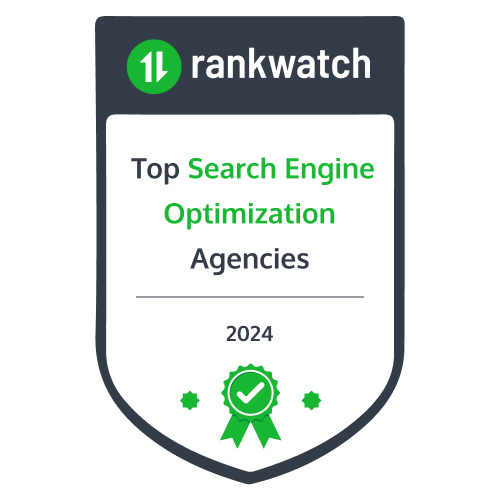The Best SEO Tools for Comprehensive Website Analysis

Image source: Freepik
You want to find the best options for thorough website analysis to boost your online presence. Tools like Google Analytics and SEMrush can reveal valuable insights. But how do you choose the right ones? It’s more than just numbers; it’s about understanding your audience and improving your strategy. Let’s explore the key tools that can truly make a difference in your SEO efforts.
Importance of SEO Tools
SEO tools are essential for anyone looking to improve their website’s visibility. They offer a range of benefits that can help boost your online presence. With these tools, you can analyze your site’s performance and identify areas for improvement. Understanding your website’s strengths and weaknesses is vital for growth.
One of the key features of SEO tools is their ability to track your rankings. They provide insights into how well your site performs in search engines. This data helps you make informed decisions about your content and strategies. Additionally, many tools come with integration options. This means you can connect them to other platforms, making your analysis more streamlined.
Another benefit of using SEO tools is their ability to analyze competitors. You can see what works for others and adapt your approach. By leveraging these insights, you can stay ahead in the game.
In short, investing in SEO tools gives you a competitive edge. They simplify complex data into understandable insights, guiding you toward better strategies. Embrace these tools, and watch your website’s visibility improve.
Keyword Research Tools
Understanding your website’s performance sets the stage for effective keyword research. You need to know what your audience is searching for. This is where keyword research tools come in handy. They help you discover valuable keywords related to your niche.
Start by exploring long tail keywords. These are phrases that contain three or more words. They often have less competition and can drive targeted traffic to your site. For example, instead of just “shoes,” try “best running shoes for flat feet.”
Next, keep an eye on keyword trends. These tools can show you which keywords are gaining popularity. This way, you can adjust your content strategy to match what people are looking for right now.
Don’t forget about niche keywords. These are specific to your business and help you attract a focused audience. By using keyword research tools, you’ll find the right combination of long tail and niche keywords to improve your SEO.
On-Page Optimization Tools
When it comes to boosting your website’s visibility, on-page optimization tools are essential. These tools help you analyze and improve various elements on your site. One key area is content readability. You want your visitors to easily understand your content. Tools that assess readability can highlight complex sentences and suggest simpler alternatives.
Another important aspect is using meta tags effectively. Meta tags help search engines understand your content. They include title tags and meta descriptions. Analyzing these tags guarantees they’re optimized with relevant keywords and accurately describe your page.
On-page strategies also involve checking your headings and image alt texts. Properly structured headings (H1, H2, etc.) guide users and search engines. Alt texts make your images accessible and can improve your SEO.
With the right on-page optimization tools, you can track these elements and get actionable insights. They help you refine your strategies and enhance your website’s overall performance. By focusing on readability, meta tags, and structured content, you can create a user-friendly experience that attracts and retains visitors.
Backlink Analysis Tools
Backlinks are like votes of confidence for your website. They show search engines that your content is valuable. To improve your site’s performance, you need to analyze these backlinks carefully. That’s where backlink analysis tools come in. These tools help you assess your link building strategies and identify areas for improvement.
First, you can check the backlink quality. High-quality backlinks come from reputable sites. They hold more weight in search rankings. By using these tools, you can see which links are helping you and which might be dragging you down.
Next, anchor text analysis is essential. This tells you how your backlinks are labeled. If you see a lot of generic anchor text like “click here,” it might be time to optimize. You want your anchor text to be relevant to your content and include keywords.
Finally, these tools often allow you to spy on your competitors. You can see where they get their backlinks and learn from their success. By understanding your backlinks, you can refine your link building strategies and boost your site’s authority.
Technical SEO Tools
Technical SEO tools are essential for optimizing your website’s performance. They help you identify issues that could affect your site’s visibility in search engines. One of the key functions of these tools is performing technical audits. These audits check for problems like broken links, missing tags, and crawl errors. Fixing these issues can greatly improve your site’s health.
Another important aspect is site speed. Slow-loading pages can drive visitors away and hurt your rankings. Technical SEO tools can analyze your site speed and offer suggestions for improvement, like optimizing images or reducing server response time.
Mobile optimization is also significant today. More users access websites on their smartphones. Technical SEO tools assess how well your site performs on mobile devices. They check for responsive design, usability, and load times.
Rank Tracking Tools

Image source: Freepik
Keeping track of your website’s rankings is essential for understanding your SEO efforts. Rank tracking tools help you monitor your position in search results over time. They provide valuable insights into your rank performance metrics, showing how well your site is doing compared to your goals.
These tools also keep you informed about ranking algorithm updates. Search engines frequently change their algorithms, and these updates can impact your rankings. By using a rank tracking tool, you can quickly see how these changes affect your site’s visibility.
Additionally, you can perform competitor rank comparisons. Knowing where your competitors rank for the same keywords can guide your SEO strategy. It helps you identify gaps and opportunities in your approach.
Most rank tracking tools offer user-friendly dashboards and reports. You’ll easily find trends and patterns in your rankings. This information is vital for making informed decisions about your SEO tactics.
Site Audit Tools
While tracking your rankings is important, understanding the overall health of your website is just as essential. This is where site audit tools come in. These tools help you identify issues that could hurt your site’s performance. They assess various factors like site speed, mobile-friendliness, and broken links.
The site audit benefits are clear. You can spot problems before they become bigger issues. Regular audits help you maintain a healthy site and improve user experience. It’s recommended to perform a site audit at least once a month, but your site audit frequency can vary based on your updates and changes.
To get the most out of your audits, create a site audit checklist. This checklist should include checking for duplicate content, analyzing meta tags, and confirming proper image optimization. By following a checklist, you guarantee you don’t miss any critical elements.
Using site audit tools regularly keeps your website in top shape. It allows you to make informed decisions and enhances your SEO strategy. So, make site audits a priority in your website management plan. Your site will thank you for it!
Competitor Analysis Tools
To stay ahead in the eCommerce business for example, you need to understand what your rivals are doing. Competitor analysis tools can help you gather valuable insights. These tools allow you to see their strengths and weaknesses, so you can refine your own strategies. Here are four key aspects to evaluate:
- Competitor Benchmarking Strategies: Compare your performance against competitors. This helps you identify where you stand and what you need to improve.
- Market Trend Analysis: Understand the current trends in your industry. By analyzing competitor data, you can spot shifts in consumer behavior and adjust your tactics accordingly.
- Competitive Positioning Tactics: Learn how your rivals position themselves in the market. This insight can inform your branding and messaging strategies.
- Keyword Strategy Insights: Discover which keywords your competitors are targeting. This allows you to optimize your own SEO efforts and capture more traffic.
Content Optimization Tools

Image source: Freepik
Understanding your competitors is just the beginning. To truly stand out, you need effective content optimization tools. In order to write high-quality copy, these tools help enhance your website’s performance and user engagement.
First, focus on content structure strategies. They guide you in organizing your content logically. This makes it easier for users to navigate your site. Use headings, bullet points, and short paragraphs to break up text. This way, visitors can find the information they need quickly. incorporate readability assessment techniques. These techniques evaluate how easy your content is to read. Tools like readability score calculators help you simplify complex sentences. Aim for a friendly tone that resonates with your audience.
Don’t overlook multimedia enhancement methods. Adding images, videos, and infographics can make your content more appealing. Visuals grab attention and help explain your message better. Use optimization tools to guarantee these elements load quickly and don’t slow down your site.
Analytics and Reporting Tools
Analytics and reporting tools are essential for tracking your website’s performance. They help you understand how users interact with your site. By analyzing data, you can spot analytics trends and improve your strategy. Here are four key tools to evaluate:
- Google Analytics: This is a powerful tool for monitoring traffic. It offers detailed reporting metrics, such as user demographics and behavior flow.
- SEMrush: Beyond SEO, SEMrush provides analytics on your competitors. You can compare performance and discover new opportunities.
- Tableau: For data visualization, Tableau stands out. It transforms complex data into easy-to-understand visuals, making it simpler to spot trends.
- Hotjar: This tool gives insights into user behavior through heatmaps. You can see where users click most often, helping you refine your design.
Using these tools effectively will give you a clearer picture of your website’s health. You’ll be able to track progress, identify issues, and make data-driven decisions. So, engage with analytics and start enhancing your site today!
User Experience Tools
Enhancing user experience is vital for keeping visitors engaged on your website. To achieve this, you can use various user experience tools. These tools help you understand how users interact with your site.
One effective method is usability testing. This involves observing real users as they navigate your website. You’ll see where they struggle and what works well. This direct observation can provide valuable insights to improve your site.
Another important aspect is gathering user feedback methods. Surveys and feedback forms can help you learn what users like or dislike about your site. This feedback is essential for making informed improvements.
Don’t forget about design accessibility. Confirm your website is usable for everyone, including people with disabilities. Tools that check for accessibility issues can help you create a more inclusive experience.
Budget-Friendly SEO Tools
If you’re looking to improve your website’s SEO without breaking the bank, you’re in luck. There are plenty of budget-friendly SEO tools available that can help you analyze and optimize your site. Here are four affordable options you should consider:
- Ubersuggest: This tool offers keyword suggestions, site audits, and even competitor analysis. It has a free version, along with affordable plans.
- SEMrush: Known for its extensive features, SEMrush provides a free trial, so you can test it out before committing. It’s great for keyword research and backlink analysis.
- Moz: Moz offers a 30-day free trial of its Pro plan. You’ll get access to tools like keyword explorer and site audits, perfect for improving your SEO strategy.
- Google Analytics: This is a free tool that helps you track your website’s performance. You can analyze traffic and user behavior to make informed decisions.
Before choosing a tool, check user reviews to find the best fit for your needs. With these budget-friendly options, you can enhance your website’s SEO without overspending.
Conclusion
Having the right SEO tools is like having a map in a dense forest. You wouldn’t want to wander aimlessly, would you? By using these tools, you can uncover insights that boost your website’s visibility and performance. From keyword research to backlink analysis, each tool plays a crucial role in your strategy. So, take charge of your online presence and let these tools guide you toward success. Your website deserves it!




